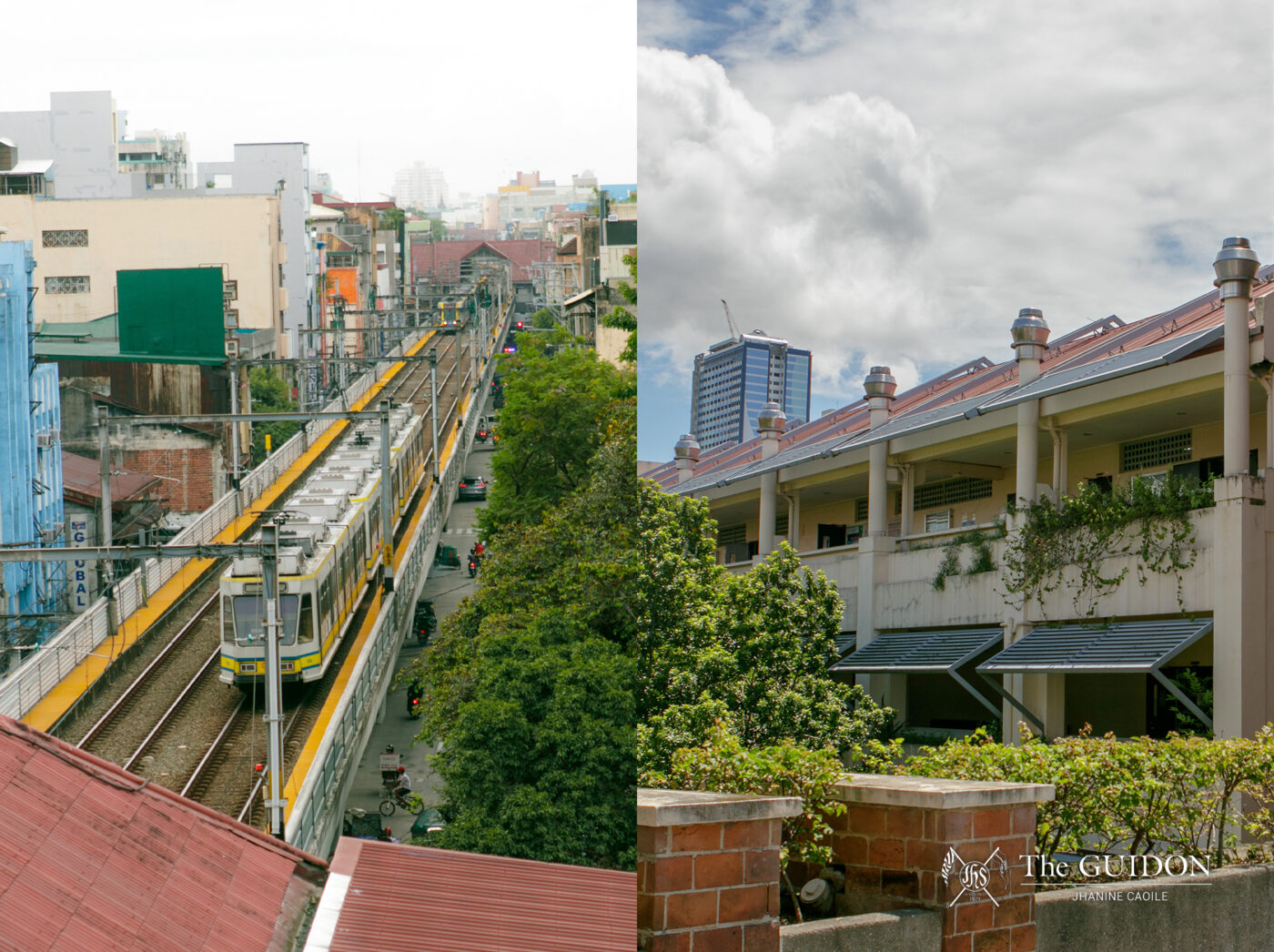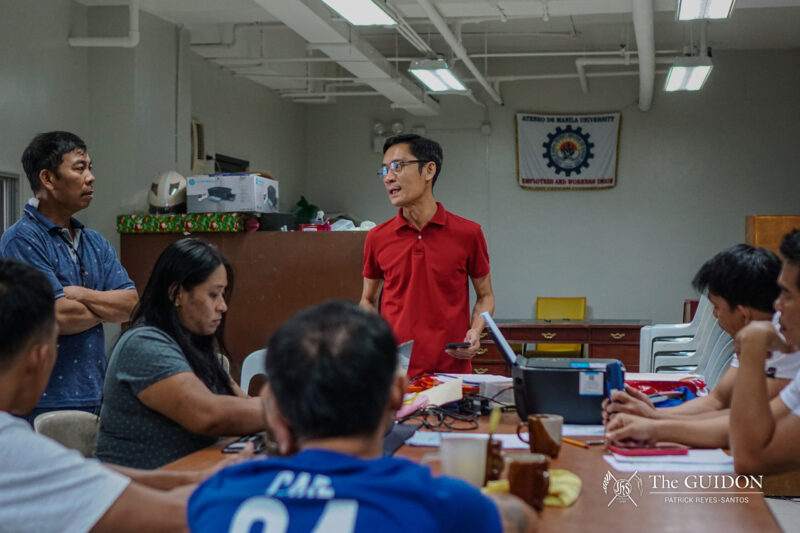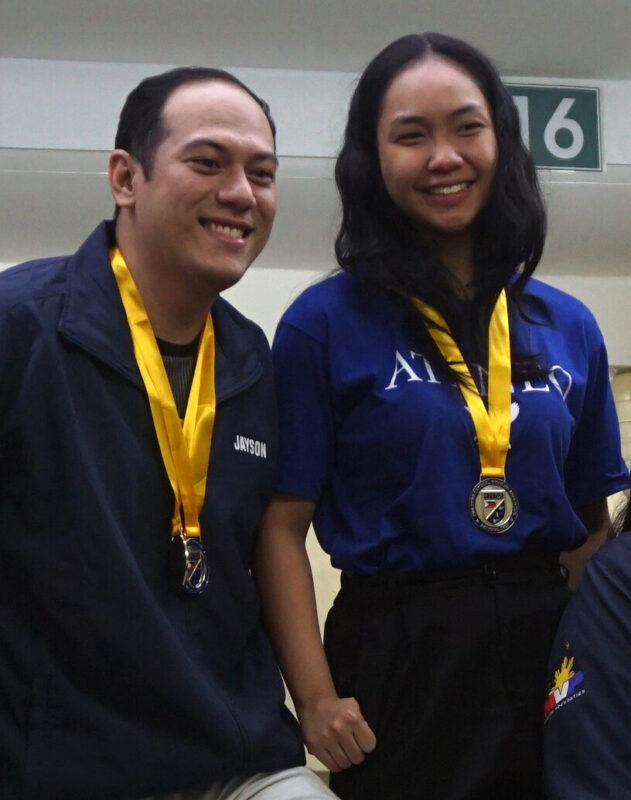IN AN effort to progress railway education in the Loyola Schools (LS), the School of Science and Engineering (SOSE) partnered with the Light Rail Manila Corporation (LRMC) to offer three new elective courses: Transportation and Society, Principles of Railway Transportation, and Railway Management and Engineering.
LS Electronics, Computer, and Communications Engineering (ECCE) Department Officer-in-Charge Gian Paolo T. Mayuga, PhD, confirmed that the new courses will be handled under ECCE and conducted onsite.
In addition to the three current ECCE tracks—Electronics, Computers, and Communications—Railway Engineering may also be added as a track for ECCE students in AY 2023–2024.
Engineer Robert Peña, part of the ECCE Department’s team-in-charge of planning, expounded that these courses are part of a minor degree program proposal that is currently being drafted for students majoring in the physical sciences and engineering. Additionally, the LRMC may host and offer a five-month onsite internship program classified as on-the-job training (OJT) for these students.
Manning the stations
Expounding on the courses, Peña explained that the first course Transportation and Society will be an Interdisciplinary Elective (IE) course that provides a general approach to railway engineering. This will be open to any student who has taken Science, Technology, & Society 10 (STS 10).
Another IE, Principles of Railway Transportation, will be exclusively offered to physical sciences and engineering majors. Meanwhile, Railway Management and Engineering will be offered as a major elective for ECCE students taking the railway engineering track.
Discussions to bring these courses to the Ateneo initially began in 2019, when the LRMC contacted the Ateneo through Ateneo alumnus Manny V. Pangilinan and his group of companies. Then-SOSE Dean Evangeline Bautista, PhD, and current LRMC President Juan Alfonso initially intended to create a minor program for railway engineering into the school.
Guerrero, successor to Bautista, elaborated that the pandemic suspended these conversations, which were then revisited last September 2021 as quarantine restrictions eased.
“Given the impact of the pandemic on the economy, both parties, Ateneo and LRMC, decided to take it a bit slower in terms of working together in developing academic programs,” Guerrero explained.
Following the project’s revival, the ECCE Department started planning the courses by the end of the second semester in AY 2021–2022. They collaborated with the LRMC’s administrators and engineers in drafting the proposal and content started during the intersession term of AY 2022–2023.
“It’s essential that we work together to share resources, to solve problems, and just build the nation through collaboration,” Guerrero emphasized.
Leveling the rocky terrain
Despite these developments, Guerrero cited that the main limitation encountered was the ECCE’s lack of faculty members trained in mechanical engineering and transportation. However, he clarified that the ECCE faculty members are eagerly collaborating with LRMC engineers, who may also serve as guest lecturers in the classes, on the course content and teaching.
In addition, Guerrero mentioned that there were differences in timetables while working with the private sector, highlighting the sector’s relative fast pacing. However, Guerrero clarifies that this concern did not pose a significant problem in developing the courses and is thankful for LRMC’s steadfast cooperation.
When asked about budgeting and the usage of facilities, Guerrero said that SOSE is still in discussions with the LRMC with regards to the necessary budgets and training that students may undergo in the LRMC laboratories.
As part of the partnership’s goal to further railway education and improve the transportation sector, Guerrero hopes to “build more appreciation” among students in finding solutions to improve railway and transportation issues in the country.
“We’re facing many challenges with the urban environment and to increase our chances of a sustainable future, we need our students to […] experience what it’s like to work in this complicated type of system such as our railway and transportation system,” Guerrero said.
Moving forward, Guerrero also looks forward to the opportunities that working with the private sector can bring to the University. Furthermore, he believes that the partnership between the University and LRMC will serve as the starting point for further developing railway education by increasing competence and compassion needed in the field.
“With the support of the administration, collaboration with faculty members and interest of the students, as well as technical expertise from LRMC, the ECCE department is upbeat in delivering the best possible railway program that can be offered,” Mayuga said.







